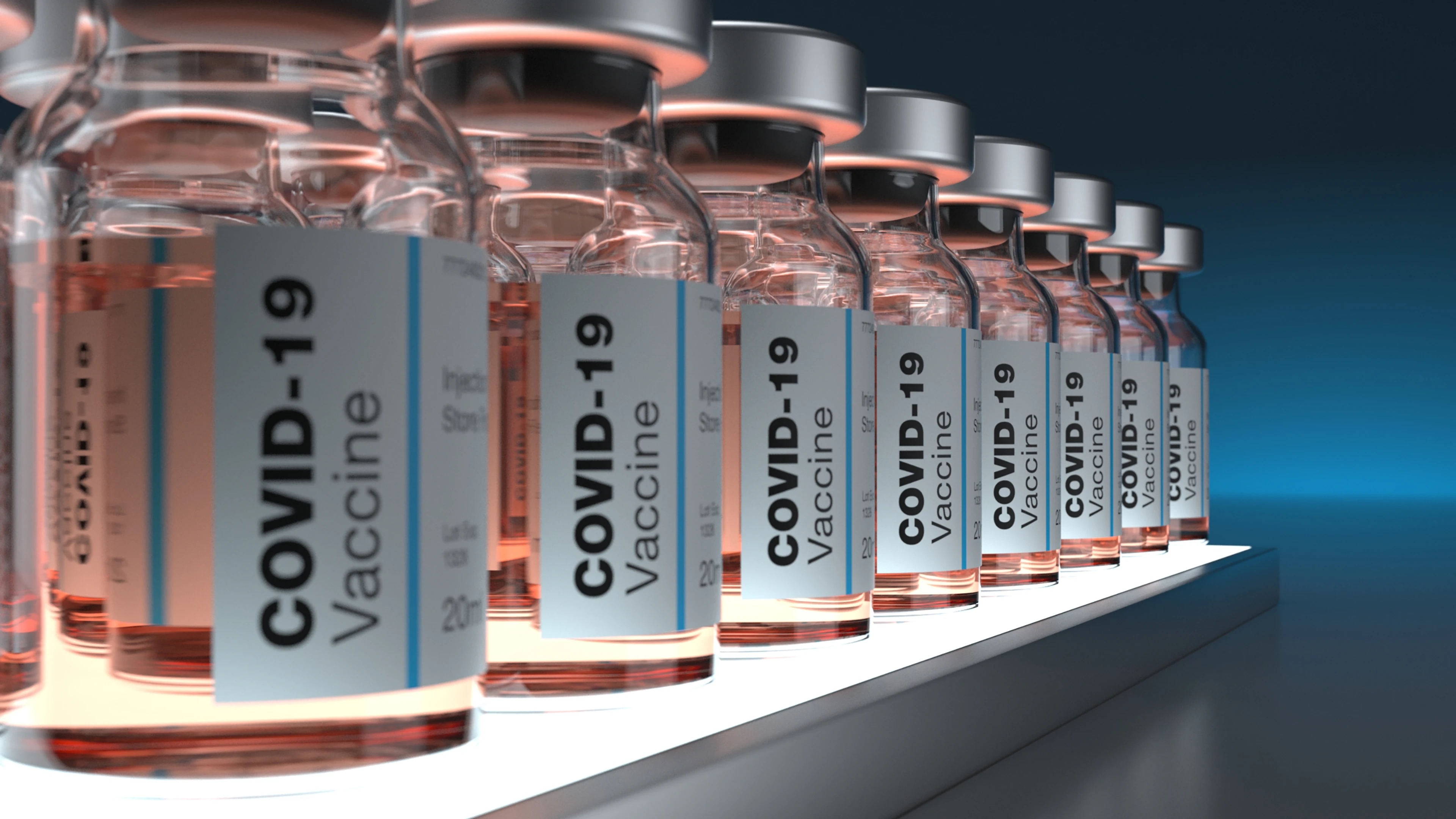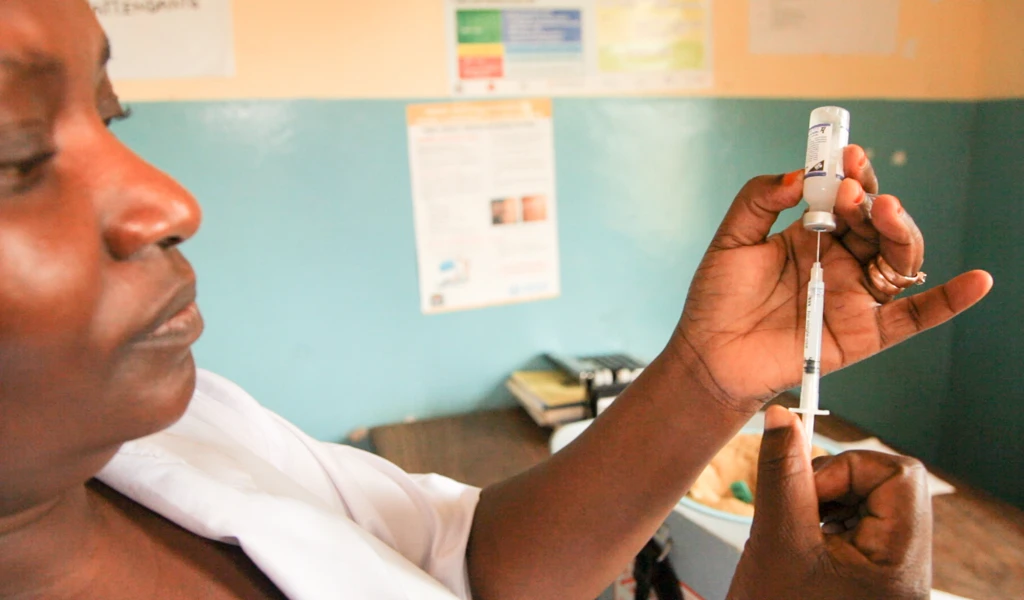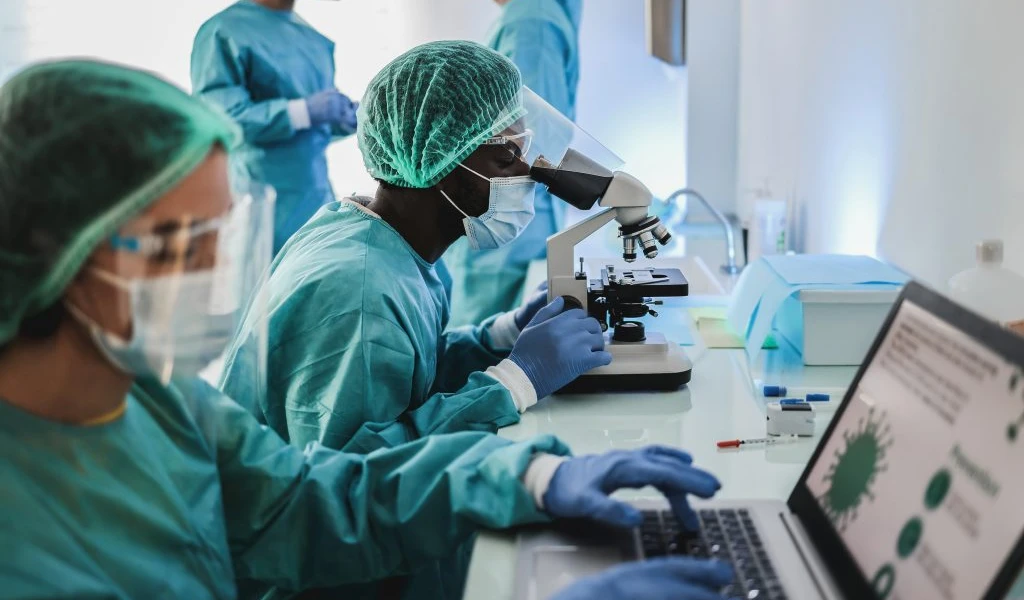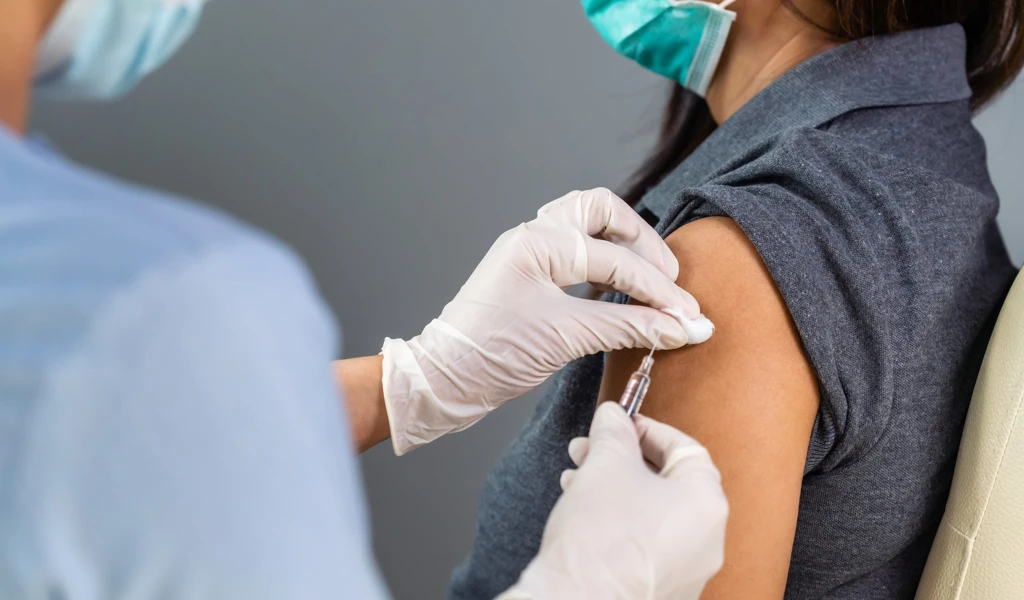CEPI opens Call to evaluate fractional COVID-19 booster and third shots as part of efforts to stretch global vaccine supply

Oct 11, 2021, Oslo, Norway — The Coalition for Epidemic Preparedness Innovations, or CEPI, has launched a new Call for Proposals to fund clinical trials evaluating the impact of reduced booster doses and third doses* of COVID-19 vaccines — an approach which could play an important role in stretching the global COVID-19 vaccine supply and increasing access to doses in underserved regions worldwide.
In particular, the research programme is inviting applications from individual organisations and consortia, including COVID-19 vaccine developers, to assess whether smaller doses of a single COVID-19 vaccine booster shot—as opposed to a full booster dose—would improve, broaden, and prolong the immune response following a primary series of COVID-19 vaccination, while also putting less strain on already constricted global COVID-19 vaccine supplies.
Administering smaller vaccine shots—also known as fractionation—has previously been used to maximise global vaccine supply during outbreaks of Yellow fever and Polio**.
CEPI will make up to US $25m funding available as part of the Call, with the intention to fund several clinical trials looking at dose-sparing booster shots for different COVID-19 vaccine candidates. The funding will also support trials investigating whether a third, or additional vaccine doses, administered to immunocompromised people or other demographics, for whom the primary series of vaccine did not provide enough protection from COVID-19, could also be fractional, and still provide sufficient protection. CEPI will also consider trials evaluating the use of a fractional dose of COVID-19 in participants who are ‘primed' following previous natural infection, as well as studies providing a reduced follow-up shot to participants who have received a single-dose vaccination.
The COVID-19 vaccines to be used as fractional booster and third shots in the studies must have already received authorisation—either full licensure or emergency use authorisation—by a relevant / competent authority, or the World Health Organization (WHO). Use of COVID-19 vaccines currently in advanced stage clinical development may also be considered.
Results from the studies are set to advance the growing bank of data on the safety and immunogenicity of booster and third shots—which have already begun to be rolled out, as full doses, in some high- and middle-income nations. The findings from the CEPI-funded trials are expected to provide important data to inform the public health and scientific community, including groups like the National Immunisation Technical Advisory Groups (NITAGs) and the WHO Strategic Advisory Group of Experts on Immunization (WHO SAGE) on the potential merits of vaccinating people with fractional doses of COVID-19 vaccine.
The data generated by these trials may have multiple benefits when it comes to guiding vaccination strategies. Not only could findings show that a smaller booster or third vaccine dose will still provide an adequate immune response, and therefore has the potential to stretch global supply, but the clinical studies could also offer crucial information as to whether fractional doses of COVID-19 vaccines would also reduce side effects in vaccine recipients following administration.
Over the past 21 months, we have seen hundreds of vaccine developers and manufacturers work at lightning speed to respond to this devastating crisis, creating and delivering multiple safe and effective COVID-19 vaccines in record time.
Now, as some wealthier countries launch booster programmes while many regions elsewhere in the world wait for their first doses, we must do everything in our power to build on the success of these life-saving vaccines and make sure that available supplies are being optimised for maximum public health impact. This includes launching this new Call so that we can expand the currently available data to best inform regulatory and policy decisions on the value of additional doses of vaccine and whether lower doses can be used to further optimise supply.
We therefore highly encourage research consortia and organisations, as well as COVID-19 vaccine developers, to apply for funding.
Improving the global COVID-19 vaccine supply
Despite tremendous achievements within the pandemic response, seeing over 6.4 billion doses of safe and effective COVID-19 vaccines administered to date, the global picture of access to COVID-19 vaccines remains wholly unacceptable. Only 2.5% of people living in low-income countries have received at least one dose of COVID-19 vaccine to date.
In addition to COVAX calling on Governments, developers, and vaccine manufacturers to recommit their support for equitable access to COVID-19 vaccines, through dose donations and prioritisation of COVAX doses in production lines, CEPI is leading efforts to increase the global supply through expanding research on the performance of existing COVID-19 vaccines so that currently available tools can be best used for maximum public health impact.
Research already funded by CEPI under this area of work includes a study with the University of Oxford looking at the potential to ‘mix and match' doses of different COVID-19 vaccines. CEPI has also funded clinical trials looking at the immune response and/or efficacy generated by vaccines in specific demographics, like immunocompromised patients (with Oslo University Hospital and partners) and HIV-positive populations (with a consortium led by the International Vaccine Institute).
Other CEPI-led initiatives to improve global COVID-19 vaccine supply and ultimately increase equitable access to doses includes the COVAX Marketplace, a secure platform, created by CEPI and COVAX partners, to address supply chain bottlenecks.
Efforts to fill in remaining COVID-19 R&D gaps are part of a broader $3.5bn plan of work, announced by CEPI in March, 2021, to strengthen global defenses against COVID-19 and minimise or even eradicate the risk of future epidemics and pandemics.
Further details on the Call and information on how to apply are available on the CEPI website.
ENDS
Notes to Editors
*A booster dose is an extra dose of COVID-19 vaccine provided to people who have had their primary series. The potential reasons for giving a booster dose include to address waning immunity over time, to enhance a vaccine's performance against a variant, or to enhance the performance of a vaccine against one or more outcomes. Data is emerging on this topic showing that the vaccine effectiveness is well maintained over time against serious disease and against the current variants. There is some reduction in protection for the milder end of the disease spectrum, though it is difficult to disentangle if this is related to waning of protection over time, or reduced protection from recent variants.
In the current environment of constrained supply, CEPI's position is that the public health benefit per COVID-19 vaccine dose will be greatest for doses given as a primary series to high-risk populations that are unvaccinated, as opposed to doses given as a booster dose in already protected populations. However, it is clear that additional R&D and analysis are needed to better understand how and when booster shots should be used, how their use would impact on the supply of primary vaccinations, and how primary and booster vaccines can be rolled out in parallel.
A third or additional shot is an extra dose of a vaccine which is administered to immunocompromised people, or other demographics, for whom the primary series of vaccine did not give them enough protection from COVID-19. This third or additional dose is provided based on evidence that immunocompromised people, or other demographics, have not responded sufficiently to the dosing regimen evaluated in the efficacy trials.
** In 2016, the WHO recommended using one-fifth of a regular dose of a Yellow fever vaccine to stem outbreaks occurring in multiple countries in Africa as well as China, amid concern around the limited global supply at the time. Their proposal was based on studies finding that smaller doses of the vaccine, given to adults, could still adequately protect against disease, with a 2019 study analysing real-world data supporting this immunisation strategy.
The dose-sparing approach has also previously been recommended by the WHO to alleviate shortages of an inactivated polio vaccine. In 2016, the WHO's Strategic Advisory Group of Experts (SAGE) on immunization recommended administering the vaccine intradermally (within the skin) rather than subcutaneously (under the skin) as a way of increasing the available doses at least twofold. Multiple studies have assessed immunogenicity of intradermal fractional doses of inactivated polio vaccine compared with the full intramuscular dose and demonstrated encouraging results. The approach has also been implemented in countries like India.
Additional details on the Call
Call for Proposals: A platform trial approach to assess the immunogenicity and safety / reactogenicity of fractional COVID-19 vaccine(s) as an additional dose in primed populations (FraCT-CoV)
The Call is open immediately with applications to be reviewed on a rolling basis as they are received. The Call will remain open until the budget limit has been reached.
Applicants selected to run the trials will be asked to assess the safety, immunogenicity, and reactogenicity of a full booster/ third dose and a fractional booster/third dose four weeks following vaccination, with a follow-up of at least 3-6 months post vaccination. Partners selected through the Call will be required to follow certain trial protocol elements to allow for easy comparison of data on vaccine performance. CEPI has identified an external implementing partner who will also provide oversight, coordination, and operational support for this programme.
In line with CEPI's access policy, data from the clinical trials will be shared through open-access publications and via scientific meetings to ensure all can benefit from the research.
About CEPI
CEPI is an innovative partnership between public, private, philanthropic, and civil organisations, launched at Davos in 2017, to develop vaccines against future epidemics. Prior to COVID-19 CEPI's work focused on developing vaccines against Ebola virus, Lassa virus, Middle East Respiratory Syndrome coronavirus, Nipah virus, Rift Valley Fever virus and Chikungunya virus — it has over 20 vaccine candidates against these pathogens in development. CEPI has also invested in new platform technologies for rapid vaccine development against unknown pathogens (Disease X).
During the current pandemic, CEPI initiated multiple programmes to develop vaccines against SARS-CoV-2 and its variants with a focus on speed, scale and access. These programmes leverage the rapid response platforms previously developed by CEPI's partners prior to the emergence of COVID-19 as well as new collaborations. The aim is to advance clinical development of a diverse portfolio of safe and effective COVID-19 candidates and to enable fair allocation to these vaccines worldwide through COVAX.
CEPI's 5-year plan lays out a $3.5 billion roadmap to compress vaccine development timelines to 100 days, develop a universal vaccine against COVID-19 and other Betacoronaviruses, and create a "library" of vaccine candidates for use against known and unknown pathogens. The plan is available at endpandemics.cepi.net.
Follow our news page for the latest updates. Follow us on Twitter and LinkedIn.
Contact Details
CEPI Press Office
+44 7387 055214
[email protected]


